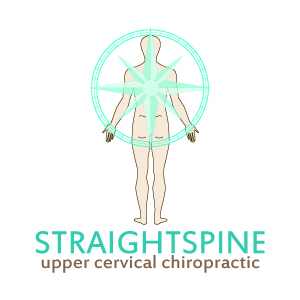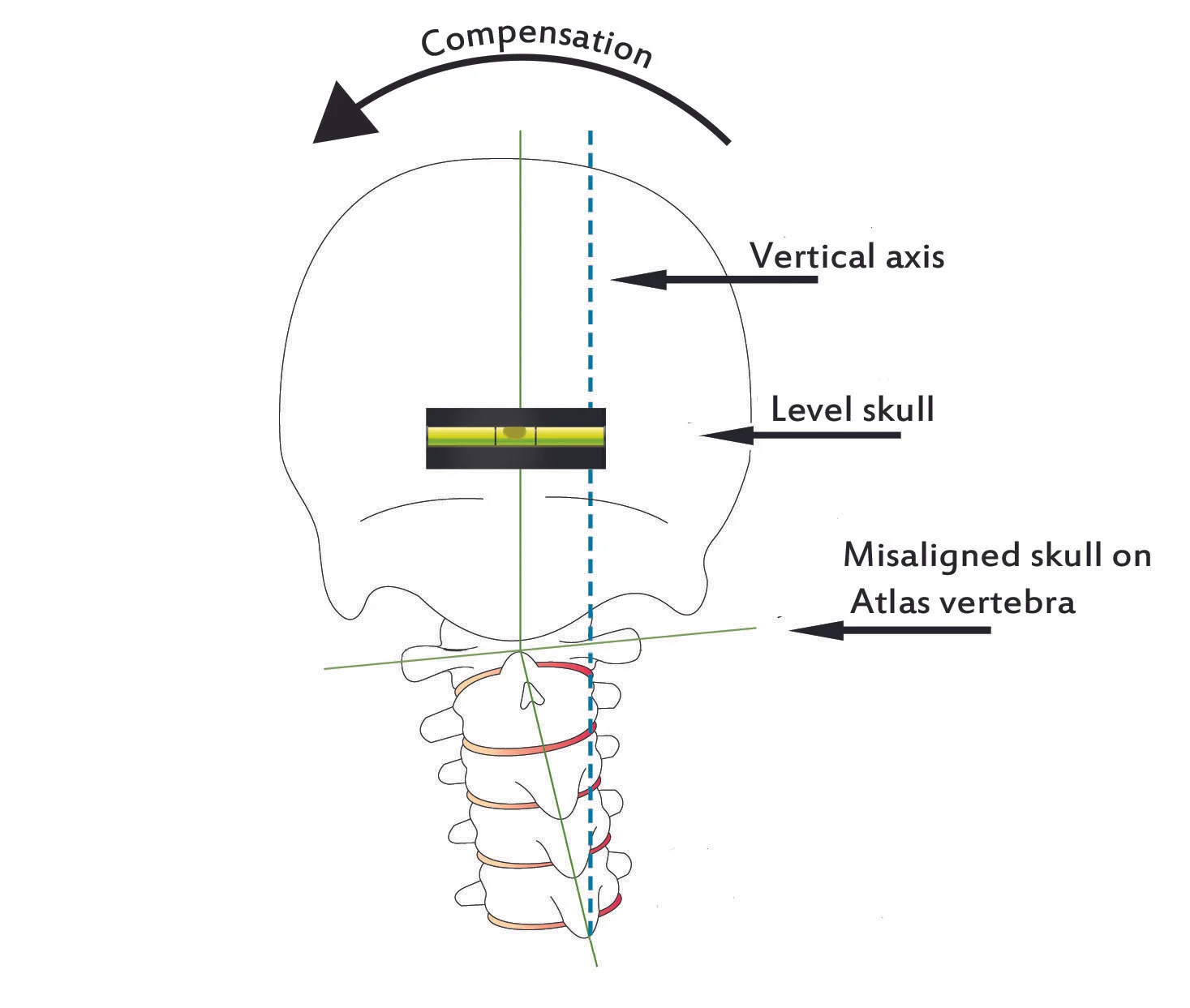How Spines Become Misaligned
The base of the skull and the top two vertebrae comprise the upper cervical spine. The topmost vertebra is called the Atlas. It is extremely important because the head sits on it. This area of the spine is mobile, unstable and susceptible to misalignment.
Falls or accidents, particularly during childhood, can create a misalignment between the skull and the Atlas vertebra. Once the skull becomes misaligned, the postural control centres will detect that the skull is no longer parallel to horizon. This will initiate a reflex compensation.
Body-orienting reflexes will alter the tone of the supporting spinal musculature. The body will shift under the skull until the skull is once again realigned to the horizon. It is this compensation, the deviation of the spine from the vertical, that sets the stage for future spinal dysfunction and impairment.




